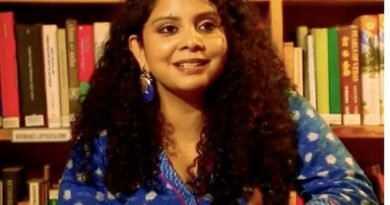Kerala BJP is a divided house under K Surendran. The Tamil Nadu model isn’t working
The bumbling Surendran’s failures have been masked by way of aggression, but the gaffes have become a recurring feature.
It was on 7 January that Bharatiya Janata Party’s Kerala in-charge, Prakash Javadekar, declared that BJP state president K. Surendran would lead the party’s Kerala unit into the forthcoming Lok Sabha elections.
The Kerala in-charge was in Alappuzha to inaugurate BJP’s constituency office when he made this off-the-cuff announcement while fielding questions from the press. The declaration came even before BJP’s national executive met to take a final call on giving an extension to party president J.P. Nadda.
Curiously, BJP’s Kerala mouthpiece, Janmabhoomi, did not report this the next day, with speculations abound that the beleaguered state president would make way when his term lapsed in February. Surendran’s closeness to Union minister V. Muraleedharan is attributed to be the primary reason for his continuance. It also helps that Surendran has the additional backing of BJP national general secretary (organisation) B.L. Santhosh, who continues to repose faith in the former’s aggressive leadership style, despite him falling well short of expectations.
Factionalism in Kerala BJP
For a party struggling to carve some space for itself in Kerala, BJP leaders in the state are a divided lot. Kerala BJP’s senior leaders of the day hail from the batch of 2006, when P.K. Krishnadas was made state president and V. Muraleedharan his deputy. Under the tutelage of P.P. Mukundan, state general secretary (organisation) for 15 years, this ‘batch’ comprises the likes of A.N. Radhakrishnan, M.T. Ramesh, Sobha Surendran and K. Surendran, who went on to form a pressure group against veterans such as O. Rajagopal and K. Raman Pillai back then. After Mukundan was relieved as general secretary by the Rashtriya Swayamsewak Sangh (RSS) and Muraleedharan succeeded Krishnadas in 2010, two factions emerged.
Muraleedharan’s decade-long stint in Mumbai and Delhi and past association with Nadda and Santhosh means he has a decisive say in the Kerala unit. Generally, the elevation of a new president also results in fresh realignment, but Surendran is staying put in Muraleedharan’s camp for now.
The Tamil Nadu Model
Javadekar’s appointment as the state in charge had initially raised the hopes of those baying for Surendran’s blood. But they were left disappointed when told, in no uncertain terms, that his mandate was to strengthen the incumbent president’s position. A sympathetic C.V Ananda Bose’s naming as the West Bengal governor in November 2022 had also given the rebel camp a glimmer of hope as he had been filing regular reports on developments in the state to the BJP top brass.
For the leadership, however, there is a lack of alternatives, with none among the ‘batch of 2006’ inspiring its confidence. When lateral entrant K. Annamalai was named Tamil Nadu BJP president last year, there was talk of that model getting emulated in Kerala. Actor Suresh Gopi’s name was doing the rounds, but he reportedly wasn’t keen on taking the job.
The bumbling Surendran’s failures have been masked by way of aggression, but the gaffes have become a recurring feature. Apparently, Union minister Rajeev Chandrasekhar is the frontrunner to replace Surendran in case of any contingency today. That Chandrasekhar-controlled Asianet News is at the forefront of targeting Surendran, and, conversely, the state BJP’s continuing boycott of the channel, may not entirely be incidental.
Surendran’s fluctuating fortunes
Surendran emerged as the Hindutva poster boy during the BJP-led agitation against the Supreme Court’s verdict on women’s entry into the Sabarimala shrine in 2018-19. That was when the BJP seemed to be on an upswing in Kerala. With the Congress leadership of Mullappally Ramachandran and Ramesh Chennithala coming across as jaded, BJP seemed well within a chance of emerging as a third alternative in the state. Yet, Surendran’s three-year tenure as president has proved to be a massive disappointment to the party’s rank and file.
During Surendran’s tenure, BJP did relatively well in the local body polls of 2020, registering a vote share of 15 per cent. The state assembly elections that followed, however, did not go according to the script. Not only was BJP’s vote share down by almost 4 per cent, the lone seat it won in 2016 was also squandered. After an aggressively-pitched campaign, the election result came as a huge setback to Surendran’s leadership—or lack thereof.
Surendran’s opponents within the BJP felt emboldened to attack him overtly in its aftermath, but the leadership threw its weight firmly behind him. Surendran contesting from two constituencies – Konni and Majeshwar – was also roundly criticised by veterans such as C.K. Padmanabhan and P.P. Mukundan, among others.
Surendran’s credibility crisis
The real damage was yet to follow as two election-related cases came to hog the headlines. The one about the bribing of Bahujan Samaj Party (BSP) candidate K. Sundara to withdraw his nomination in Manjeshwar is now awaiting trial, with Surendran named as the first accused in the charge sheet. The other case—on paying off National Democratic Alliance (NDA) candidate and tribal leader C.K. Janu—was equally damaging. Surendran’s voice clips in the case, whose veracity has since been attested, aired on news channels. He was heard saying how the deal should be withheld from NDA convenor P.K. Krishnandas, raising questions about his integrity.
With Surendran’s name also doing the rounds in the Kodakara hawala case, his reputation was scarred further. And finally, his son K.S. Harikrishnan’s appointment as the technical officer at the Rajiv Gandhi Centre for Biotechnology (functioning under the Union government) and flouting norms blunted BJP’s offensive against the Left Democratic Front (LDF)’s nepotistic backdoor appointments.
Hardline approach versus soft-Hindutva
Controversies aside, Surendran’s political interventions have generally been deemed mediocre in Kerala’s public discourse. Moreover, unlike in Tamil Nadu, where the BJP has the leeway to take a hardline approach personified by Surendran, Kerala, with its significant minority population, calls for a softer approach.
The recent debate on serving vegetarian food at a school youth festival in Kozhikode is a case in point, where Kerala’s conscience stood with the Brahmin cook than the Left intelligentsia. Surendran’s flippant comments on serving pork at the next edition of the youth festival only illustrated the Kerala BJP’s inability to pick the right issues for debate.
The author is a Kerala-based journalist and columnist. He tweets @AnandKochukudy. Views are personal.
(Edited by Zoya Bhatti)
Source: The Print




